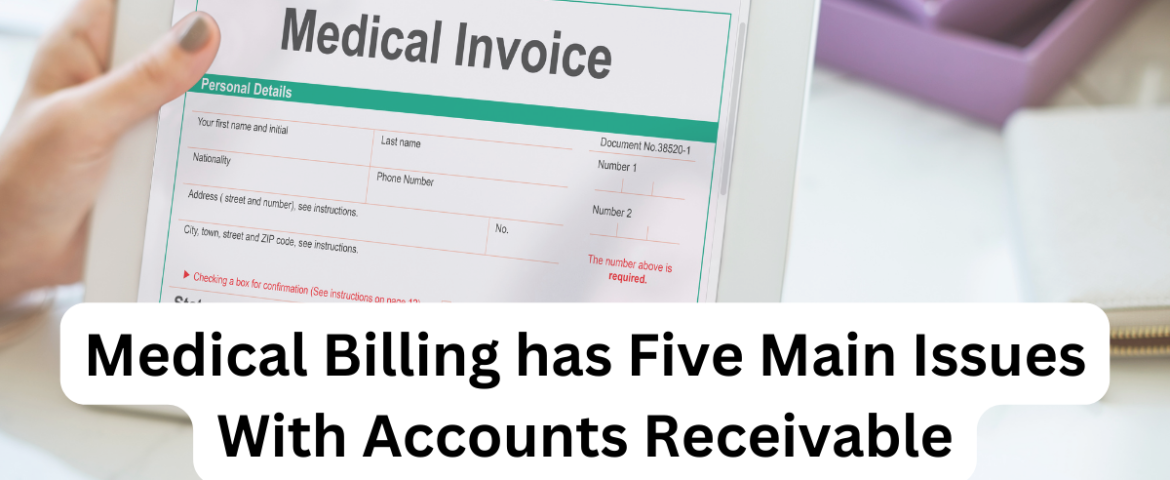Introduction
Efficient accounts receivable (AR) management is vital for the financial health of medical billing companies. The complexities of the medical billing process often lead to challenges in collecting payments in a timely and organized manner. In this blog, we will explore five main issues faced by medical billing in the realm of accounts receivable.
1. Delayed Payments
One of the primary challenges in medical billing is the delayed payment of invoices. The healthcare industry often deals with various insurance claims and reimbursement processes, causing delays in receiving payments. This delay can strain the revenue cycle, impacting the overall financial stability of medical providers and billing companies.
To address delayed payments, it is crucial to streamline revenue collection strategies. Automated invoice delivery, providing multiple payment modes, and offering discounts for on-time payments can encourage prompt settlements, ensuring a steady cash flow.
2. Invoice Discrepancies
In the intricate landscape of medical billing, invoice discrepancies are a common issue. Mistakes in billing details, coding errors, or inaccuracies in claim submissions can lead to payment delays or denials. Proper organization and thorough scrutiny of invoices are essential to minimize discrepancies and improve the accuracy of billing processes.
Implementing end-to-end tools and automation can play a significant role in reducing errors, ensuring a more streamlined and efficient AR process.
3. High Days Sales Outstanding (DSO)
A prolonged Days Sales Outstanding (DSO) is a red flag in the medical billing industry. It indicates that customers are taking an extended time to settle their debts, creating financial challenges. To mitigate this issue, offering sustainable credit plans, diversifying payment options, and adopting enhanced financial protocols can help reduce DSO and maintain a healthier revenue cycle.
Efficient credit policies and consistent audits can further identify and address abnormal credit limits, ensuring a more balanced and timely payment process.
4. Customer Disputes and Resolutions
Medical billing often involves complex transactions, leading to potential disputes between providers, insurers, and patients. Disputes can arise due to billing errors, misunderstandings, or disagreements over services provided. Resolving these disputes promptly is crucial for maintaining positive patient-provider relationships and ensuring a steady cash flow.
Transparent communication channels, automated reminders, and customer-friendly portals can aid in addressing disputes efficiently. Offering discounts or customized credit plans for early payments can also incentivize customers to resolve issues amicably.
5. Inefficient Communication
Poor communication is a significant barrier in the medical billing AR process. Inaccurate contact information, failure to update customer records, and a lack of communication tracking can lead to delayed or missed payments. Establishing robust communication channels and utilizing automation tools for regular updates and reminders can significantly improve communication efficiency.
Conclusion
Medical billing faces several challenges in managing accounts receivable effectively. From delayed payments and invoice discrepancies to high DSO, customer disputes, and inefficient communication, these issues can impact the financial stability of healthcare providers and billing companies. Implementing streamlined processes, embracing automation, and adopting customer-centric strategies are essential steps in overcoming these challenges and ensuring a smoother and more efficient medical billing accounts receivable process.
For More Info – https://i-conicsolutions.com/service/medical-billing-services/





